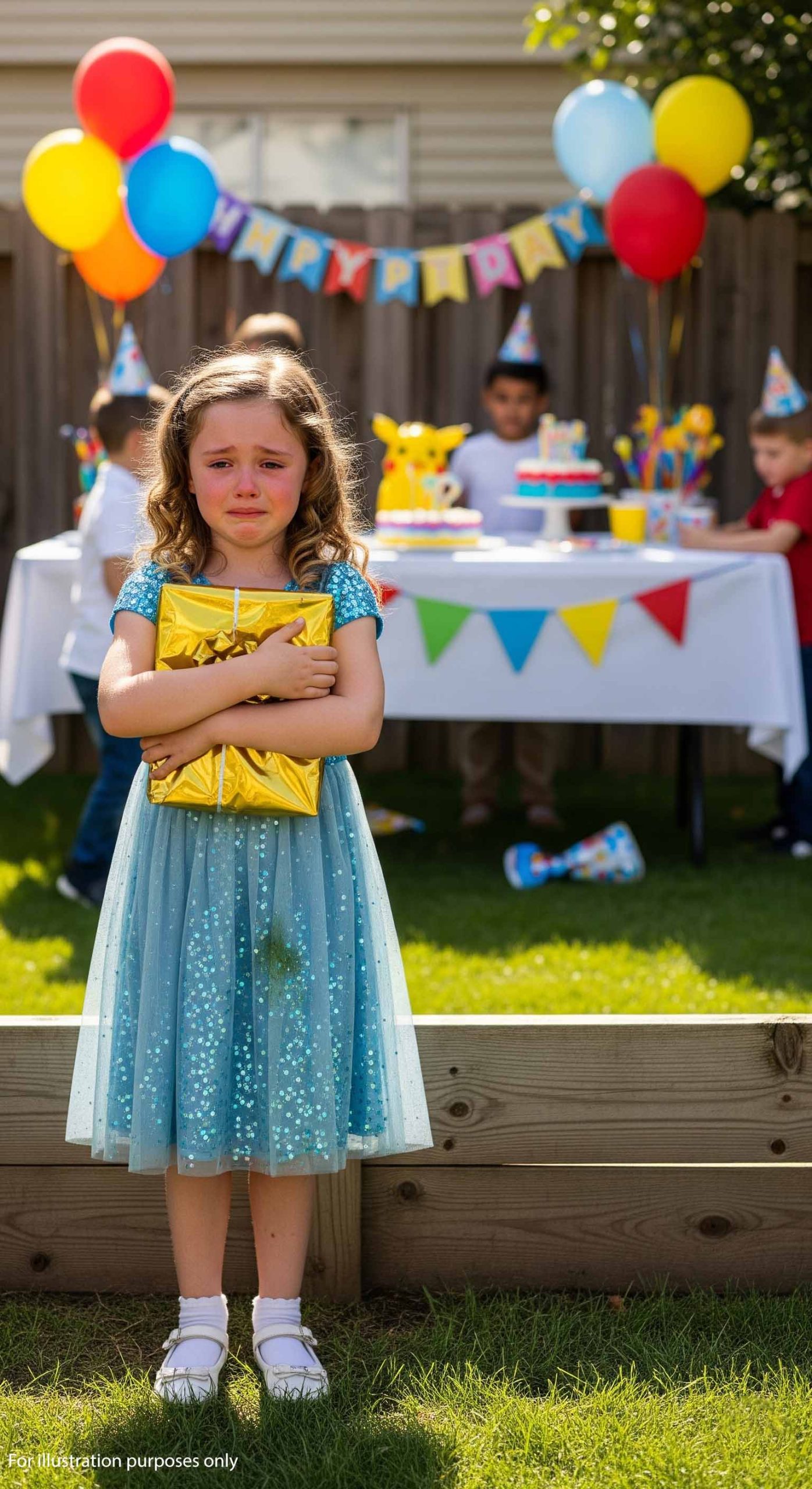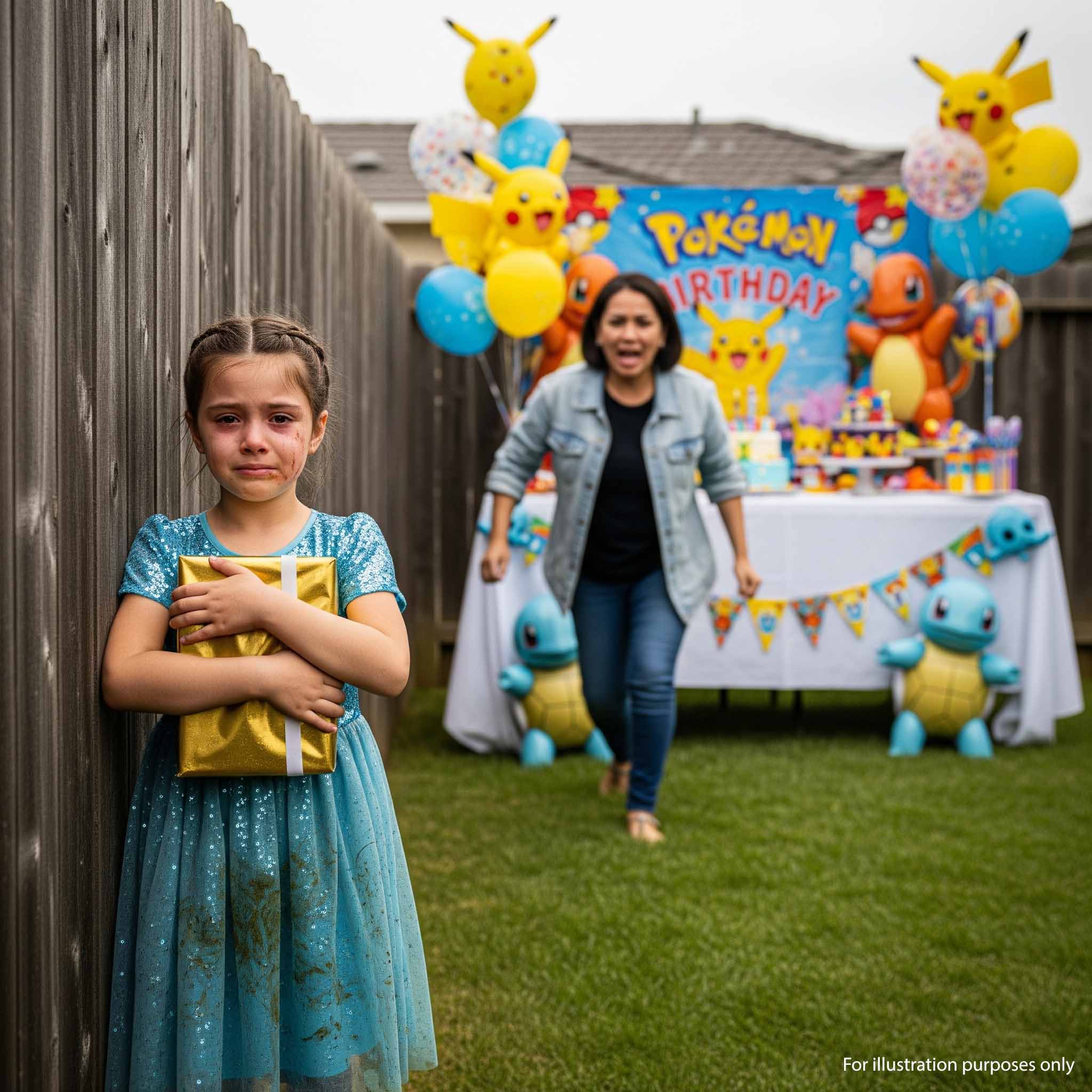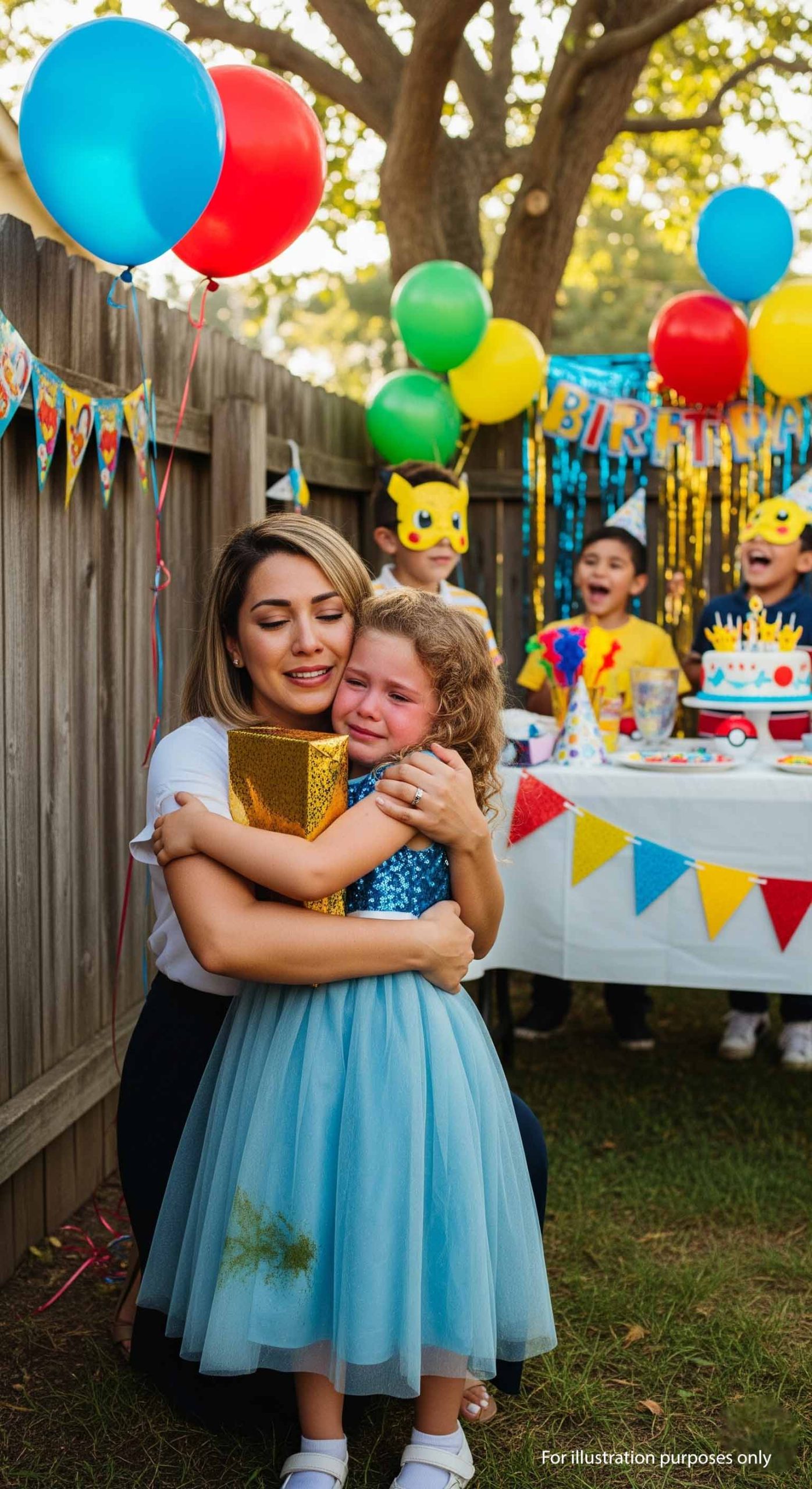The day my 6-year-old came home from a birthday party in tears was the day something in me snapped. I had swallowed my frustration for years, hoping kindness would bridge the gap. But that afternoon, the line between patience and tolerance vanished — because no one tells my child she doesn’t belong.
How We Became a Family
I met Michael at twenty-eight — divorced, a single mom, and fiercely protective of my little girl, Sophie, who had just turned two. On our first date, I brought her along. No babysitter, no apologies — I needed to know if this man could love all of me.
Many men offered forced smiles and stiff waves at her. Michael knelt down, asked about her bunny socks, and spent twenty minutes helping her glue rainbow sequins onto paper while I sipped my coffee, quietly watching.
Two years later, we married. Sophie wore a flower crown and insisted on holding both our hands as we walked down the aisle. On her fifth birthday, Michael legally adopted her. When she whispered, “Can I call you Daddy now?” he replied, “Only if I can call you my daughter forever.”

A Shadow in the Corner
Michael’s mother, Evelyn, never voiced outright disapproval, but her omissions spoke volumes. She never asked Sophie about school, never hung her drawings on the fridge, never addressed holiday cards to her. I convinced myself she just needed time.
Michael said, “She’s old-fashioned. Be patient.”
So I was — until the Pokémon party.
The Call
It was Michael’s nephew Ryan’s 7th birthday. Sophie spent the week beaming about it, picking the perfect limited-edition card set as his gift. She wore her sparkly blue dress “for the pictures,” she said.
We dropped her off at noon, planning a quick lunch for ourselves. Forty-five minutes later, my phone buzzed — Michael’s spare phone, in Sophie’s hands.
Her voice trembled. “Mommy? Can you come get me? Grandma said… I’m not part of the family. She told me to wait outside.”
I felt the blood drain from my face. “Where are you, sweetheart?”
“By the back gate. I don’t want to go to the sidewalk.”
Michael’s jaw tightened. “We’re coming.”

The Confrontation
She was standing alone when we arrived, gift clutched like a lifeline, cheeks streaked with tears. Michael scooped her up.
I stormed inside. Evelyn sat at the table, calmly eating cake. Laughter floated from another room — the party went on without my child.
“Why was my daughter outside?” My voice was ice.
“She’s not part of this family,” Evelyn said evenly. “This party is for family and friends.”
David’s wife kept her eyes on her plate.
“You left a six-year-old alone so you could eat cake?” I said, shaking. “You’ll regret teaching her this lesson — because it’s the last one you’ll teach her without me standing in the way.”
I walked out before my anger boiled over.
The Lesson
Two weeks later, we hosted Michael’s birthday picnic. The invitations read:
“Everyone who considers Sophie family is welcome.”
An hour before the party, Evelyn texted: “Am I excluded?”
I replied: “I’m just following your rule.”
She didn’t show. But Ryan did — running up to Sophie, whispering, “I’m sorry Grandma was mean. You’re my sister.”
Sophie smiled and handed him the gift she’d saved. “It’s still for you.”
That afternoon, under fairy lights and with cupcakes in hand, they laughed like nothing had happened.

Aftermath
Weeks later, Evelyn called. Sophie answered.
“I forgive you,” she said simply, “but don’t ever treat me like that again. It was ugly.”
Michael later told his mother: “If you can’t love her as your granddaughter, you lose both of us.”
Since then, Evelyn has tried — cards, phone calls, even baking Sophie a cake. I remain cautious. But Sophie? She believes in second chances.
As for me, I know this: My daughter will never wonder if she belongs. Not while I’m here. Not ever.